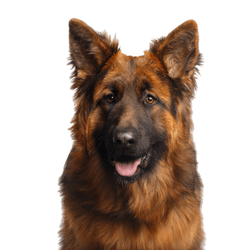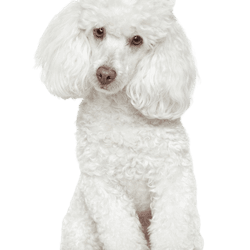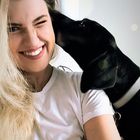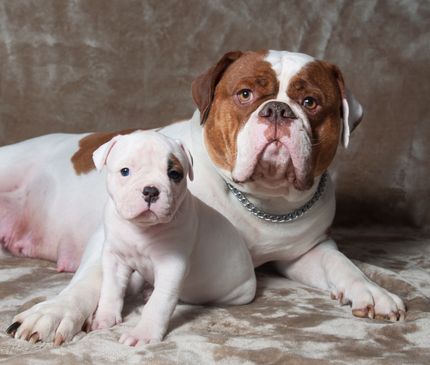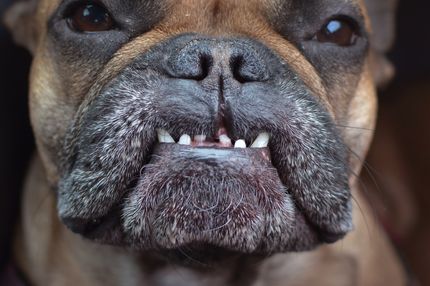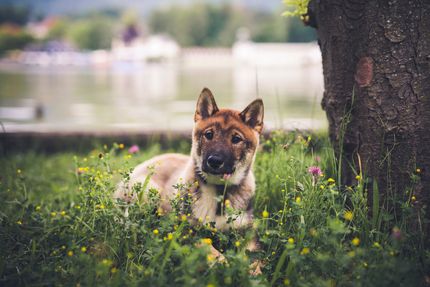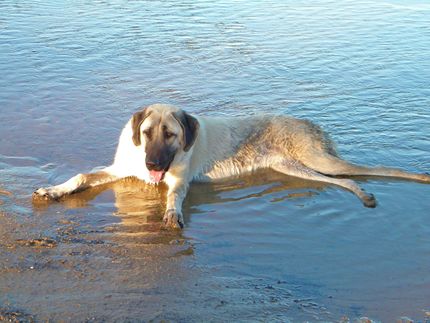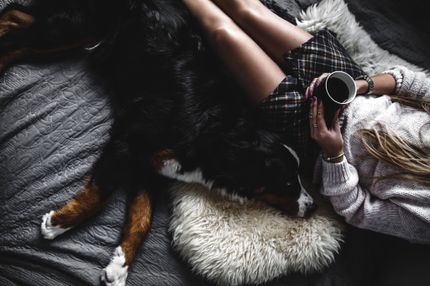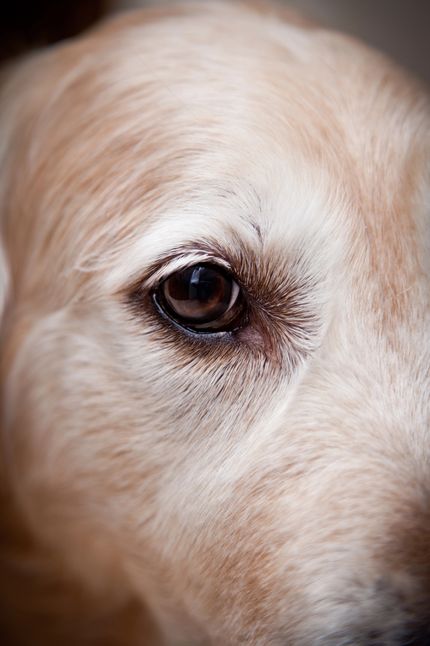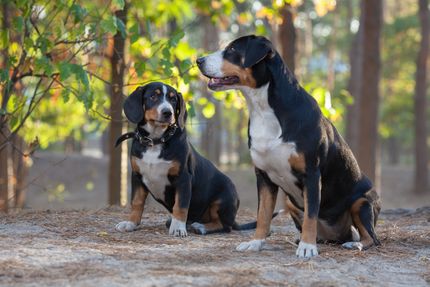Facts & Origin
Origin of the Shepadoodle: Between working instinct and family friend
The Shepadoodle is a designer hybrid breed, created from the deliberate crossing of the German Shepherd and the Poodle - usually the Standard Poodle. The aim of this cross was to create a dog that combines the intelligence, willingness to work and loyalty of the German Shepherd with the allergy-friendliness and eager-to-learn nature of the poodle. The first documented breedings can be traced back to programs in the USA that were looking for a versatile, trainable and well-tolerated service dog - for example for the military or for use as an assistance dog.
In contrast to many "fashion hybrids", the Shepadoodle is therefore partly based on functional motivation. Nevertheless, it has also established itself as a popular family dog - especially among active owners looking for a dog with brains and stamina. As with all hybrid dogs, however, there is no fixed breed definition, which can lead to significant differences in appearance and temperament.
Name synonyms: many names, one mix
The Shepadoodle goes by different names in various sources and breeder circles. The most common name variants include
Sheepadoodle (not to be confused with the Old English Sheepdog × Poodle mix)
German Shepherd Poodle Mix
German Doodle
Shepherdoodle
Despite similar names, these terms are not protected or standardized. Anyone interested in a Shepadoodle should therefore check exactly which parent animals were actually involved - because both the Poodle and the Shepherd exist in different sizes and lines, which can strongly influence the characteristics of the offspring.
Criticism: Demanding crossbreed with high requirements
Despite its popularity, the Shepadoodle - like many hybrid dogs - is subject to criticism. Experts complain that many breeders offer this mix for visual or marketing reasons without paying sufficient attention to temperament, health or genetic fit. Both parents are highly intelligent, sensitive and eager to work, which means that the Shepadoodle needs clear leadership, intensive activity and mental challenge.
| Alternate Name | German Shepherd Poodle Mix, German Doodle, Shepherdoodle |
| Origin | Germany |
| Life expectancy | 9 - 15 years |
| Care requirements | low-maintenance - high-maintenance |
| Activity level | high - average to high |
| FCI group | not recognised |
| AKC group | not recognised |
| KC group | not recognised |
More German Shepherd mixes
More Poodle mixes
Attitude, character and temperament of the breed
Possible character traits: Intelligent, sensitive and alert
A typical Shepadoodle is highly intelligent, eager to learn and very attentive. He wants to please his humans, loves clear tasks and reacts sensitively to mood and body language. They often inherit alertness, protective instincts and a strong bond with their owner from German Shepherds and a playful, energetic nature and the need for variety from Poodles.
These dogs are usually extremely people-oriented, with a quick grasp of things and a great need for leadership. They are ideal for dog sports, rescue dog work or as assistance dogs, but require consistent, positive training and lots of social contact.
The Shepadoodle is not a sofa dog: if it is underchallenged or neglected, undesirable behavior such as barking, restlessness, destructiveness or dominance behavior can occur. However, with the right leadership, it is an extremely loyal, intelligent and versatile partner.
Character
Diseases & care: Between robustness and effort
Shepadoodles are generally considered robust dogs, but they can inherit health weaknesses from both parents. The most common genetic risks include
Hip dysplasia (HD)
Elbow dysplasia (ED)
epilepsy
Eye diseases (PRA, cataract)
Autoimmune diseases
MDR1 gene defect (rare, but possible)
A responsible breeder will test both parents for these risks - prospective buyers should definitely ask about this and have it documented.
As far as grooming is concerned, the effort required varies greatly depending on the coat type: Many Shepadoodles have a curly to wavy coat that does not shed, but must be brushed regularly and professionally clipped every 6-8 weeks or so. Without grooming, the coat tends to become matted, which can lead to skin problems. The ears should also be checked and cleaned regularly, as drooping ears are prone to inflammation.
Possible appearance: Elegant, sporty and with a lot of expression
The appearance of the Shepadoodle varies greatly - depending on which parent is visually more dominant. Many animals have an athletic, well-muscled build, with a body weight of between 25 and 35 kg and a shoulder height of 50 to 65 cm.
The coat is often medium to long haired, curly or wavy, sometimes with a beard and bushy tail. The color palette ranges from black, grey, beige, cream to sable or two-tone variants. Merle markings can also occur, especially if a silver poodle was involved.
The eyes are often expressive, almond-shaped and dark, with an intelligent and attentive look. The ears usually hang to the side or slightly tilted forward. Overall, the Shepadoodle is an elegant, eye-catching dog that quickly gains sympathy through its presence and charming nature.
| Fur length | long - medium |
| Fur | flat coated - curly |
| Ear shape | Standing Ears - Floppy Ear |
| Tail | fanned out - lang |
| Anatomy | massive, strong, slim, sporty |
| Size ♀ | 45 - 60 cm |
| Weight ♀ | 18 - 32 kg |
| Size ♂ | 45 - 65 cm |
| Weight ♂ | 18 - 40 kg |
| Suitable For | - |
Known Diseases
Epilepsy
Definition: Dog has epilepsy if, for example, at least two epileptic seizures occur more than 24 hours apart.
Cataract
Cataracts are still one of the most common causes of blindness, even in dogs.
Progressive Retinal Atrophy (PRA)
Progressive retinal atrophy (PRA) is a slowly progressive death of the retina in dogs.
Patellar problems
Problems with the Patellar can be a displacement or weak kneecap, which is one of the most common causes of lameness in dogs, also because of overweight.
Eye diseases
Often occur with allergies and intolerances.
FAQ
-
A German shepherd-poodle mix is a cross between a German shepherd and a poodle. These dogs are often called Shepadoodles or Shepapoos.
-
Shepadoodles can vary in appearance, but they typically have the characteristics of both breeds. They often have the coat of a German Shepherd with the curly hair of a Poodle.
-
The size of the Shepadoodle usually ranges from medium to large. They can weigh over 30 kg.
-
Shepadoodles need regular exercise and should be brushed regularly so that their coat does not become matted and knotted.
-
Yes, these dogs are usually good with children. They are usually gentle and patient, which makes them ideal companions for families.
